U.S. Supreme Court strikes down race-conscious college admissions policies

Photo taken on June 29, 2023 shows the U.S. Supreme Court in Washington, D.C., the United States. (Xinhua/Liu Jie)
WASHINGTON, June 29 (Xinhua) -- The U.S. Supreme Court on Thursday ruled that race-conscious admissions policies used by colleges and universities are unconstitutional, in a pair of cases involving Harvard University and the University of North Carolina at Chapel Hill.
The Supreme Court stated that the admissions policies of Harvard and the University of North Carolina (UNC), two of the oldest institutions of higher learning in the country, violated the equal protection clause of the 14th Amendment to the United States Constitution.
Chief Justice John Roberts authored the majority opinion, noting that "the Harvard and UNC admissions programs cannot be reconciled with the guarantees of the Equal Protection Clause."
"Both programs lack sufficiently focused and measurable objectives warranting the use of race, unavoidably employ race in a negative manner, involve racial stereotyping, and lack meaningful end points," he wrote, adding that "we have never permitted admissions programs to work in that way, and we will not do so today."
Roberts noted that "the student must be treated based on his or her experiences as an individual - not on the basis of race."
"Many universities have for too long done just the opposite. And in doing so, they have concluded, wrongly, that the touchstone of an individual's identity is not challenges bested, skills built, or lessons learned but the color of their skin," he wrote.
Harvard University responded to the decision in a statement that "we will certainly comply with the Court's decision."
"For almost a decade, Harvard has vigorously defended an admissions system that, as two federal courts ruled, fully complied with longstanding precedent. In the weeks and months ahead, drawing on the talent and expertise of our Harvard community, we will determine how to preserve, consistent with the Court's new precedent, our essential values," said the university.
"On behalf of the people of our state, we will work with the administration to ensure that the University of North Carolina at Chapel Hill complies fully with today's ruling from the nation's highest court," David L. Boliek Jr., the chair of UNC-Chapel Hill's Board of Trustees, said in a statement, adding that "we intend for America's oldest public university to keep leading."
The court decision made headlines across the country.
NBC pointed out that "the ruling is a massive blow to decades-old efforts to boost enrollment of racial minorities at American universities." CNN described it as "a landmark decision that overturns long-standing precedent that has benefited Black and Latino students in higher education."
"The ruling could have far-reaching effects, and not just at the colleges and universities across the country that are expected to revisit their admissions practices," commented The New York Times, one of the nation's major newspapers, adding that the decision could prompt employers to rethink how they consider race in hiring.
U.S. politicians reacted to the decision along ideological lines.
President Joe Biden, a member of the Democratic Party, said in a news conference that "the court has effectively ended affirmative action in college admissions."
"I strongly, strongly disagree with the court's decision," he noted, adding that "we cannot let this decision be the last word."
The White House said in a press release that "the Supreme Court upended decades of precedent that enabled America's colleges and universities to build vibrant diverse environments where students are prepared to lead and learn from one another."
"Although the Court's decision threatens to move the country backwards, the Biden-Harris Administration will fight to preserve the hard-earned progress we have made to advance racial equity and civil rights and expand educational opportunity for all Americans," said the press release.
Vice President Kamala Harris said in a press release that the decision "rolls back long-established precedent and will make it more difficult for students from underrepresented backgrounds to have access to opportunities that will help them fulfill their full potential."
On the other hand, members of the Republican Party welcomed the decision by the conservative-dominated Supreme Court.
U.S. Senate Republican Leader Mitch McConnell said in a statement that "the Supreme Court's decisions on college admissions are a long-overdue step toward ensuring equal protection under the law."
"Most Americans agree that racial discrimination should play no part in the college admissions process. Now that the Court has reaffirmed that commonsense position, students can get a fair shot at college and the American dream on their merits," he added.
Former President Donald Trump praised the decision.
"This is a great day for America," he wrote on his Truth Social page, adding that "this is the ruling everyone was waiting and hoping for and the result was amazing."
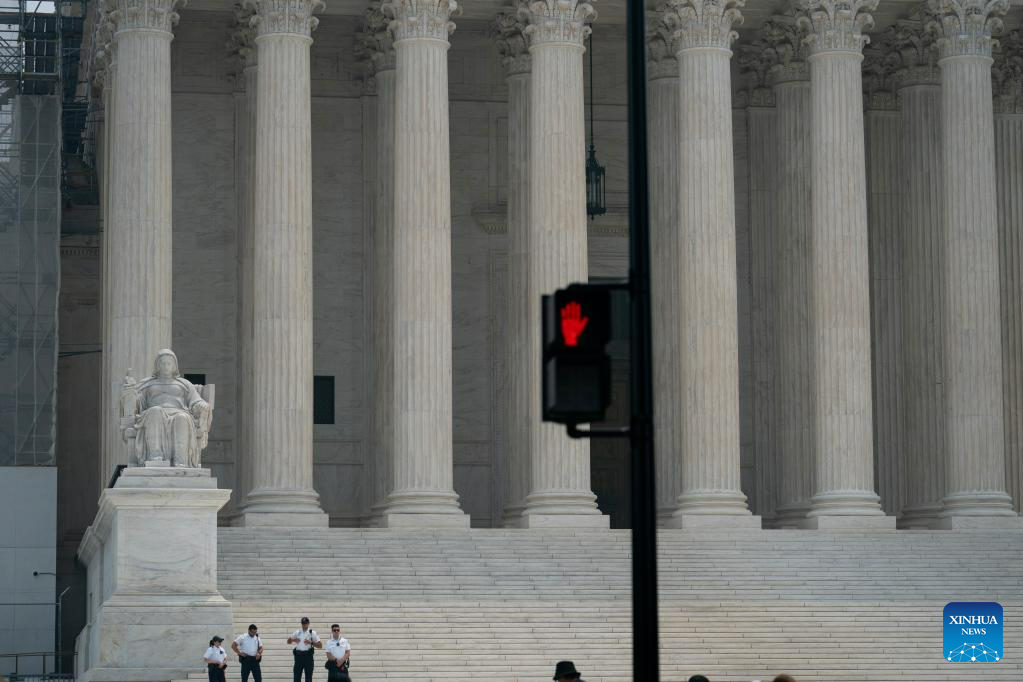
Police officers stand guard outside the U.S. Supreme Court in Washington, D.C., the United States, on June 29, 2023. (Xinhua/Liu Jie)
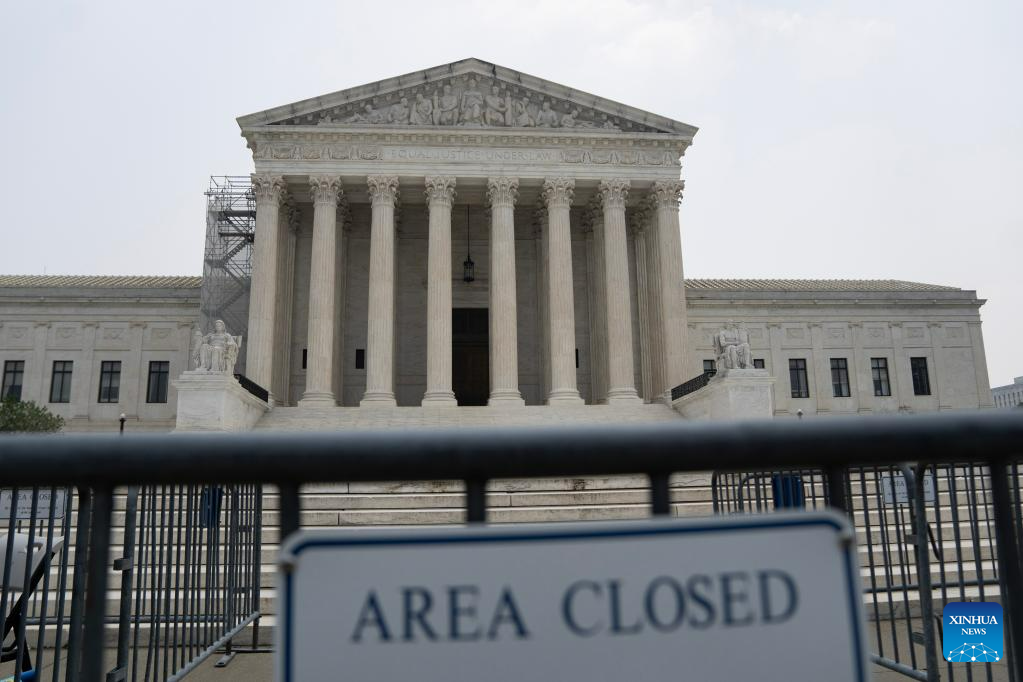
Photo taken on June 29, 2023 shows the U.S. Supreme Court in Washington, D.C., the United States. (Xinhua/Liu Jie)
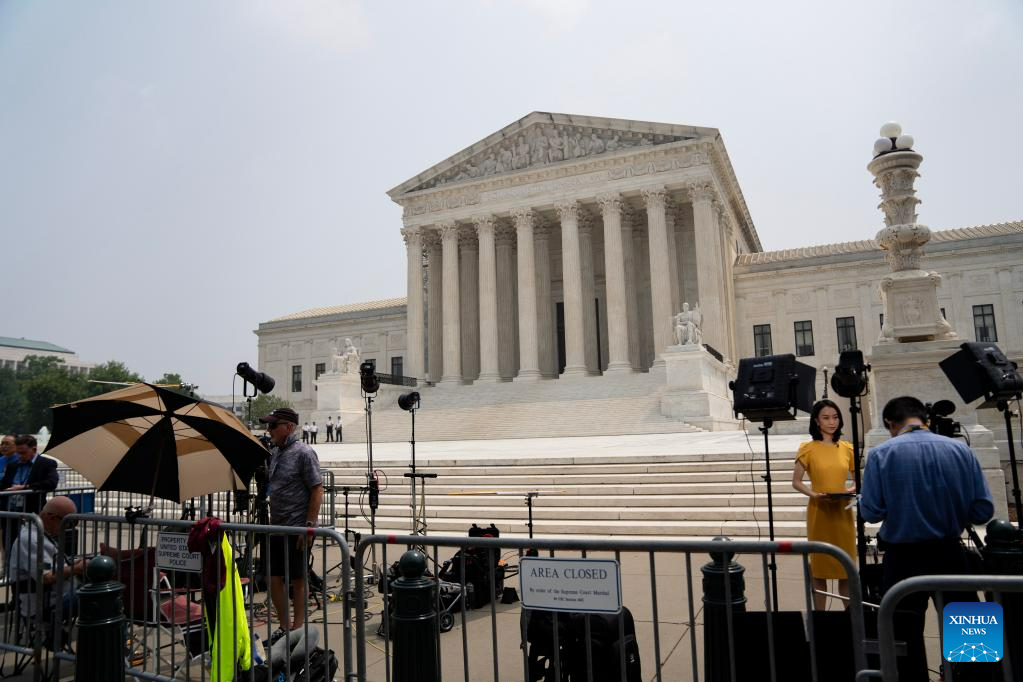
The press works in front of the U.S. Supreme Court in Washington, D.C., the United States, on June 29, 2023. (Xinhua/Liu Jie)
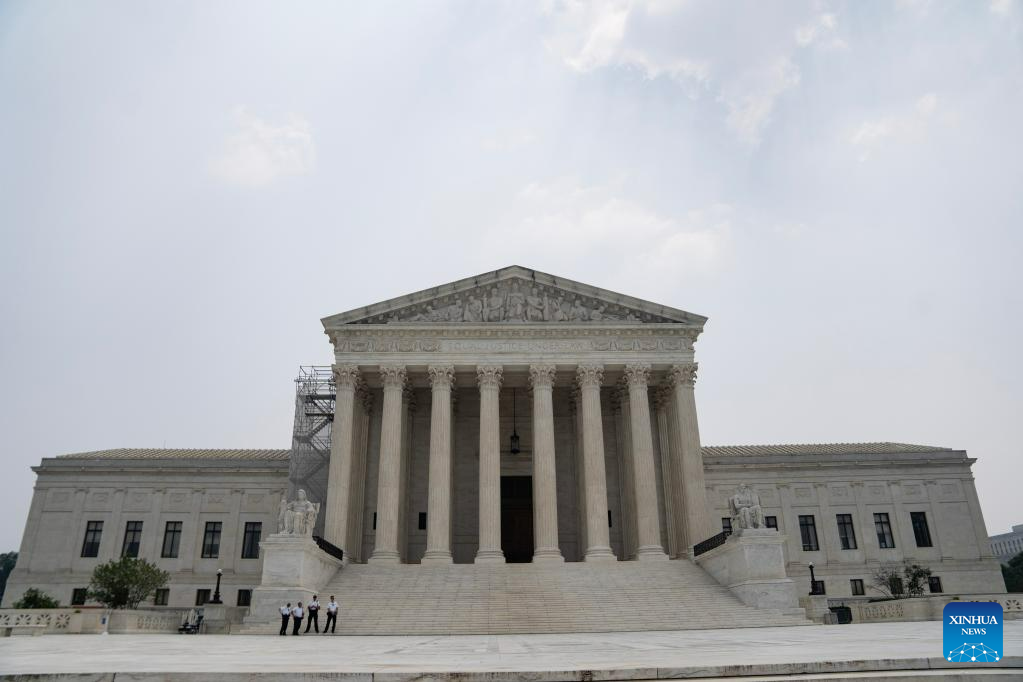
Photo taken on June 29, 2023 shows the U.S. Supreme Court in Washington, D.C., the United States. (Xinhua/Liu Jie)
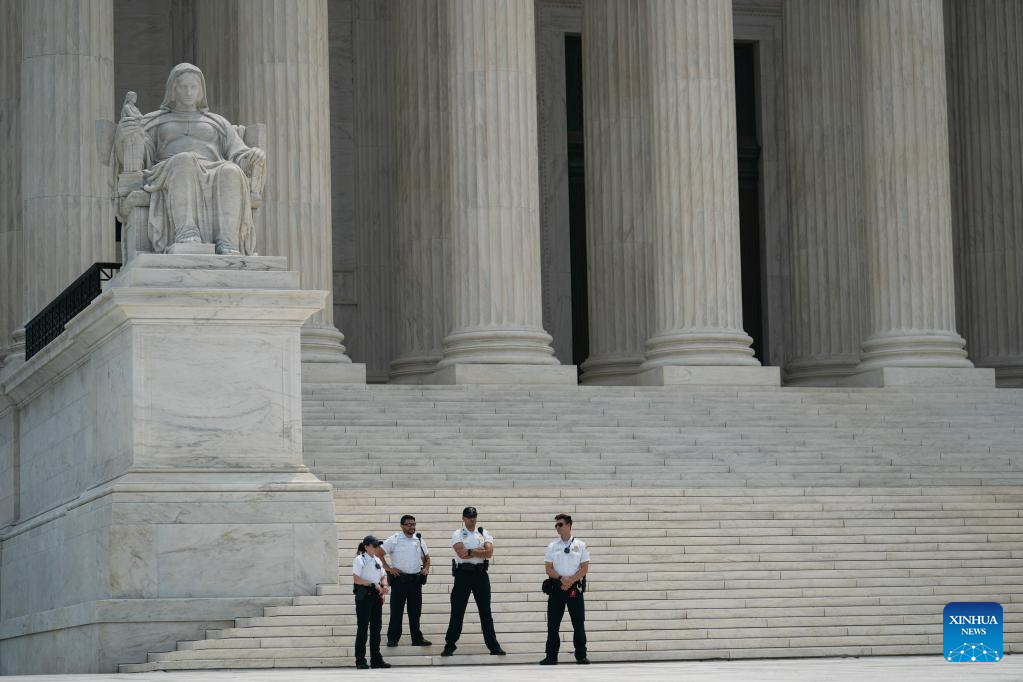
Police officers stand guard outside the U.S. Supreme Court in Washington, D.C., the United States, on June 29, 2023. (Xinhua/Liu Jie)
Photos
Related Stories
- Americans remain divided on gun control as national worry over violence rises: Pew
- U.S. delivery truck drivers' nationwide strike "imminent": The Hill
- Over 120 mln Americans across dozen states under air quality alerts due to Canadian wildfire smoke
- Scapegoating won't alleviate drug abuse in U.S.
- Philippine president says still studying U.S. proposal on Afghans' resettlement
Copyright © 2023 People's Daily Online. All Rights Reserved.









